The UK Parliament’s Public Accounts Committee says the Ministry of Defence has left the taxpayer to shoulder huge cost increases due to the MoD’s poor contract management.Â
In a report published today, the Committee say that the MoD was unable to explain why it has repeated past mistakes – many of which have been repeatedly commented on by the National Audit Office and Public Accounts Committee for more than 30 years – and has failed to learn lessons from comparable projects in the civil nuclear sector and in the United States.
“The MoD accepted that it must not operate in the same way in the future”, said the report.
According to the PAC, the Committee heard evidence on three of the most significant projects under construction:
- the AWE plc project MENSA at Burghfield (forecast cost £1.8 billion, completion 2023), where the Department is building a new nuclear warhead assembly and disassembly facility
- the Rolls Royce owned and operated Core Production Capability facilities at Raynesway (forecast cost £474 million, completion 2026), where the Department is replacing facilities so it can produce the latest nuclear reactor core designs
- the BAE Systems-owned Barrow shipyard facility (forecast cost £240 million, completion 2022) to allow modular build of Dreadnought-class submarinesÂ
Meg Hillier MP, Chair of the Public Accounts Committee, said:
“To utterly fail to learn from mistakes over decades, to spectacularly repeat the same mistakes at huge cost to the taxpayer – and at huge cost to confidence in our defence capabilities – is completely unacceptable. We see too often these same mistakes repeated.The Department knows it can’t go on like this, it knows it must change and operate differently. The test now is to see how it will do that, and soon.
We expect the MoD to report to us later this year, in its 2020 update on the Dreadnought nuclear submarine programme, on how it is working with industry and other departments to develop and keep in place the skills it badly needs to take forward nuclear work. We also expect a detailed assessment, of whether the current ownership arrangements for nuclear regulated sites are in the best interests of the taxpayer, to be provided to us by the end of this year.”
The MoD said it “immensely regretted” the huge waste of taxpayers’ money, which was caused by poor management of three nuclear infrastructure projects, resulting in a combined cost increase of £1.35 billion with delays of up to 6 years.
Read the summary here or read the full report ‘Defence Nuclear Infrastructure’ here.




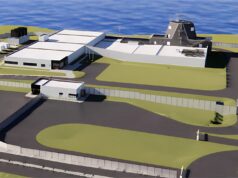
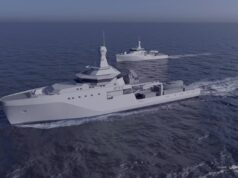
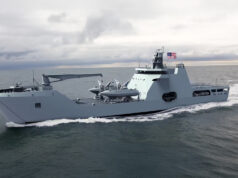
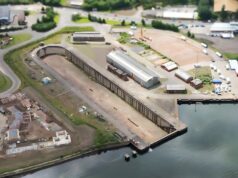
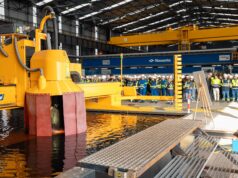


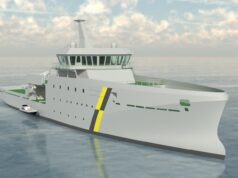

So, the P.A.C has discovered that water is wet………….no surprises there then!
£1.3b That’s FSSS built, or few more T31s or typhoon lines running for a few more years.
I’d invest it in recruitment and properly arming the ships we have, first.
Agreed, it’s all very well having more hulls, but we can’t fully man the ones we have…
To be honest I’d invest in training MOD staff to ensure that they have the Project Management skills to deliver complex projects. Then I’d invest in frontline capabilities.
The problem is that for political reasons we throw money at the front line and most of it is wasted in the process because those doing the throwing couldn’t hit a barn door at 10 paces. You wouldn’t send soldier into battle without training. Well I hope you wouldn’t. So I why, given resent NAO reports about poor training in MOD (reported on here and in more detail on Save the Royal Navy), does everyone expect poorly trained staff to do anything other than a poor job? For years the civil service has been maligned in the press and by politicians looking for scape goats, so oddly the brightest and best have moved on.
That’s a hell of a lot of money that we simply cannot afford to squander. Sure a mistake can happen but not repeatedly.
Part of the problem is the fact we have a very limited number of companies in the Nuclear side capable of providing Services and Facilities including Submarine building. These companies have the MOD over a barrel, and constant interfering/meddling from clueless politicians including constant delays and about turns in funding. Put it all together and this mess ensues.
One outcome of COVID-19, will be the rapid increase in robotisation throughout industry, and it could be here sooner than later? A number of experts predict the time of man will be on the slide within ten years, and at least 40% of manual labour will be lost to machines in the initial robot era. If that ever comes to pass, such programmes as these will possibly stand a chance of meeting cost objectives?
No chance
Robots are only useful for things like pipe and steel welding. Actually putting the pipe in place in the vessel and doing up the flanges and bolts… You need a Mk1 Mod 1 human spanner turner.
The other issue is that much of the waste is due to poor decision making – think political interference and classically educated politicians demanding that aircraft carriers well advanced in the design stage under go a major design change..!
Not to mention poor Project Management training within MOD.
In short, too much politics and virtually no focus on the Project Deliverables.
Remember British Leyland? It went the same way as you described for identical reasons. Wrong people in key positions lead to a catalog of failures. The only reason British Government programmes constantly overrun and cost a lot more than planned, is due to the gritty issue of no one actually being blamed? The new London Cross Rail is over cost and running late, but ultimately, no one will carry the can. Rover died due to a lack of government investment when it was really needed.
Hi maurice,
As you suggest lack of accountability is a major issue. Civil Servants, Military Officers and Politicians in key decision roles all tend move on in about 2 years. As such they are long gone before lessons are learnt.
You will often hear people make the excuse that corporate knowledge is still developed with post project reviews, but my experience suggests that people learn, organisations record and store data. There is usually no time for newbies to read themselves into a new job so lessons learnt by previous experience does not get passed on and will not until there are proper handover processes.
I also think decision makers should be held to account for poor decisons, even when they move on. There could be a time limit of accountability but I think such a mechanism will encourage people to undertake proper due diligence before they make a decision. By the way, I do not think being held to account should only be applied to situations that have gone wrong – I also think positive lessons with appropriate plaudits should be included in the process.
CR, you are so correct in your assumption of not invented here! I’ve worked for many programme managers who had an ego the size of Wembley Stadium, and little time for ‘Things gone wrong,’ lessons, using the premise, that there isn’t enough time to study navels. This method of oversight has been the bain of military leaders throughout history too! Who in their own way, tended to, ‘Walk Into the Valley Of Death.’ Apart from Patten (he’d have you believe) the strategies of Sandhurst and military history, strangely vanish, leading to situations as witnessed in the fall of Singapore and the entrapment of Dunkirk?
The principle of building anything is a workable procedure built on the experience of success.
Nothing wrong with a classical education. Boris could issue the orders in Greek…..mind you, as far as the MOD is concerned, they may as well be ?
[[f9.laugh]] [[f9.laugh]]
“A number of experts”…? Sources please.
I don’t suppose any of this comes as a surprise to anyone who uses this site. What i do not understand,having spent a lifetime in business, is why heads are not rolling down Whitehall, preferably without their knighthoods. Goodness knows what’s going to happen after the virus but these idiots are not helping.
The system protects the system for those in it and who get something out of it.
Ultimately the governments of recent history have all put lowest cost as the sole decision factor in awarding contracts and ignore reality or risk. Outside the MoD I’m not sure of any major public infrastructure project that has gone well. T5 was close but very public teething problems at start up let it down
Again, hardly a surprise. Private sector contract negotiators drive better deal than job-for-life public sector counterparts. We can’t afford a proper weapons suite on the T45s and T31s but can afford to throw money down the drain. How we’re not recouping this in LDs is a mystery to me.
When an audit comes back with commentary like that, heads would roll immediately in every other industry but government. The company would probably take legal action against their own staff for gross incompetance.
I’m afraid this is a result of a system that holds no senior officers and civil servants to account.
Officers in particular come into a project, dabble, change specs and push their own priorities.
They then disappear on promotion or posting, and carry on in their career with no repercussions. Civil servants that should have firmer control and a steadying hand are to be too thin on the ground to do any job properly.
Pretty much how I see it too Gfor, the military is just another greasy pole and if you get far enough up it you’re pretty damned untouchable unless you REALLY screw up. Even then, its rarely sackable, you’re more likely to get ‘sideways moved’ than sacked.
Agree to on the problem with people only worrying about ‘their watch’ and how it will affect ‘their’ career. Too many voices all trying to get noticed, rather than just head down and doing their jobs. Can’t say I have the answers because as soon as you have people in the mix you have egos, you’d need to introduce some other reward scheme than just promotions.
It’s headlines like these that make it harder and harder for the Defence Secretary to fight the Treasury bean counters for more money – which we all know is truly is needed – even before COVID-19 arrived.
With the next SDSR pushed back to 2021, the writing is already on the wall that most likely cuts are coming and any new plans to increase the defence budget most likely went out the window. No doubt the Treasury will try to claw back some of the huge deficit expended to deal with the pandemic meaning the Defence kitty will get raided – of that I am certain. To be fair, other Depts will no doubt take a hit but Defence is – and always has been – easy pickings for the Treasury to pilfer.
I’m not sure about cuts David, ordinarily yes, but our armed forces have been badly damaged and drained by years of maintaining a division sided force in the sandbox, fighting an unwinnable war.
Followed by worldwide economic collapse and Camerons hugely damaging additional cuts.
The situation is different today, though Covid19 will have caused considerable damage, the flexibility of our service led economy, should cause a rapid spring back over the next few years.
A no deal exit from the EU is now unavoidable, unless the EU blink first, I believe they will, because the EU is seriously wounded, a no deal BREXIT would cause considerable additional damage, way more than it would cause us.
So, let’s hypothesise that a Covid19 vaccine is employed, the UK goes back to normal with a good European deal and a strong recovery ensues.
We will still have ‘vast debt’, but so will everyone else, so it’s a level playing field of damage for the western economies.
The debt is simply going to be ‘so’ enormous, no austerity package will even dent it … Only solution is spend money to get the economic growth growing strongly in a stable way, while avoiding over heating and inflation, so 3.5% a year or so.
Germany, with its manufacturing based economy, might see a much slower recovery, plus, a massive European bail out bill to shoulder too!
The world is looking to be a different place after this misery is over, possibly even more unstable, so defence spending needs to increase and a thorough top down defence review is needed, to see what needs changing in the new world following the Pandemic.
This is downstream of Brown’s decision to interrupt SSN production and the dithering of Cameron over ordering SSBN. Not many countries can build an effective nuclear submarine; it is a truer test of country’s industrial strength than producing so many units of cars or white goods or what have you. Every time Westminster fudges around it isn’t just jobs at Barrow it costs, it costs jobs across, and costs the economic strength of the country. This is a consequence of being lead by career professionals with a shallow, if any, understanding of business, science, or indeed simply the ways of the world. One wonders if submarines were built in Scotland would the government have thought twice? Probably because winning votes from a twelfth of the population and keeping them happy and secure seems to be greater priority than almost anything else.
Barrow is in England, where the submarines are built!
Haven’t I asked you not to comment on my comments?
Who are you to command, that I don’t reply to your comments??
You Don’t own this site!
I didn’t command I asked.
I will reply to any comment of which I deem necessary and appropriate to reply to!
Submarines have been built at Barrow for over 130 years, so it would be highly unlikely they would be built elsewhere! Large investments in new buildings there, where made in the mid 80s. Scotland was given warship building instead.
Nobody is talking about moving submarine production to Scotland. I said, ‘if’ , condition or supposition, ‘were’, as in the past tense of ‘are’ which, ‘built’ or in other words submarine production was an activity already undertaken in Scotland (on the Clyde) would the New Labour or indeed the Cameron government have thought differently about interrupting submarine production? The reason why the UK ended up with two large carriers wasn’t because of a clear strategic need in an era of vast reductions in defence spending. It was because it satisfied Blair’s aspirations for him to be seen at the forefront of international politics and because Brown had no trouble spending money in Scotland. There was a need to replace the Invincibles but it wasn’t something predictable from the early 90s that we would end up where we ended. Looking back I would have said we probably destined for a class of two vessels somewhat similar to the Italian Cavour against a background of cuts. During that time you have to remember nobody could predict anything. If anything it should have been a time to preserve what we had in terms of numbers. But politicians in the West are short termist and cuts were the norm. Actually when the announcement about he carries was made I was very excited (I was a bit sad weren’t getting 3 but heck the RN struggled to operate 3 Invincible). But my excitement was all on the back of hopes of persevering fleet numbers, roughly 12 AAW, 16 ASW, 12 SSN, 3 amphibs, and a big RFA. It seemed logical to me that what we had been spending on RAFG in terms of cabs and personnel would be “pot” from which our future carrier air groups would be drawn. I thought Mr Blair’s ambitions were also about promoting the UK as much as himself. Sadly his ambitions were for himself and not the UK. We ended up in some pointless wars in the Sandbox. And the RN is where the RN is today.
Three has been some backtracking and dithering
on warship projects built in Scotland. As you said the Type 45 destroyer project was cut from 12 to 6 ships. And so much dithering with the Type 26 frigate project, which eventually was cut to 8 ships, with the missing 5 ships reemerging as Type 31 frigate project. A last minute decision that should have been made much earlier.
Sorry, misspellt first word should be there.
Well back when T42 was being procured the original number the RN wanted was about 24.
What politicians don’t seem to grasp is that a hull can only be in one place at one time. It doesn’t matter if the system is 10 times as good as the one it replaced you can’t reduce hull numbers. For me the minimum number of T45 was 9. I am old fashioned I like the rule of three. More hulls may be available, but 3 for 1 gives you a solid base line for surface ships. That would give us 2 for the carrier if needed and 1 for elsewhere or to protect the carrier’s fleet train. For T26 it should have been 12 tying the number to 2087 was never believable for me. We have more than 8 2087 sets, they are cheap, and we should have bought more. And this takes us back to the MFS7000 used in T45, it is poor for a billion pound ship; a breathed over MOAS set that is adequate. No. It should have had the Thales set that was intended for it from the get go. For me T45 without decent sonar is like sending T26 to sea without Aritsan and Sea Ceptor.
I am not a fan of T31 for the budget. We need a simple escort. We need more than 5 as you say; it would have to be 6 for me minimum. But no sonar? 57mm gun? The only bright spot is they went for the right hull as the BAE offering was too small; we needed a global ship. For me I would have either bought a 9th T26 and just shrug our shoulders for the rest. Or buy something else. I will offer the Holland class as an example of something we could have bought as vehicle for discussion. For the T31 budget we could have 6 of them with the costly e-mast. And perhaps even fitted a sonar and rafted the engines too.
Don’t worry about the missing spelling. Easy to do. And even easier when you can’t edit your post. The errors always appear when you can’t change them.
I think we ended up with the 65kt proposed carriers in the 1998 SDSR, was all down to the lessons learnt from the Falklands War were still being applied in 1990s, with cash saved mainly from drastic cuts in the size of the Army from about 150000 to 110000 in the first round. And the sub fleet had a drastic cut too!
What I am really saying is, there were Admirals in charge at the time of the review with direct war experience, and a pragmatic Defense Sec.
Bigger is always better with ships. One of my more minor criticisms of T45 is that they should have been 10k tonners. It wasn’t going to happen. But as systems tired to the defence of ‘global asset’ we needed them to be big.
Yes it was the 1998 review. But there was no clear direction that we would end up with 70k tonne hulls. If you had told me back then the RN was going to get say two / three ships of the size of the USS Wasp I would have been amazed never mind 2 70k tonners. What drove the carrier acquisition of that size as much as anything was Blair’s ambition. Saying that a decision needed to be taken on some sort of direction for defence. We are where we are. And as I said above two big aviation platforms as the centre of a fleet as big as we had then was an entirely different proposition. Nobody saw the Sandbox wars coming either.
We just need to hope that the government now gets behind the carriers as the centre of the UK’s out of area military capability. We also need to make sure sound decisions are made on procurement of major systems like F35. For example concentrating on B and not buying A even if leaves us with a gap; there will always be gaps.
Agree with the comments above. It’s bonkers. How come the French manage to do it all on their own without US help and assistance that we get for our own nuclear deterrent?
This seems to happen to every class in modern history but we consistabtly fail to learn lessons & repeat these mistakes.
Turning Lessons Identified in to Lessons Learnt is an absolute s**t-show across Defence, and probably government too. The ubiquitous 2-5 year posting cycle doesn’t help with it; we need to better use FTRS and incentivised ‘professional’ career streams (along the lines of professional aviators) to compensate expertise staying in-post, without being financially disadvantaged by the stalling of rank progression it would involve. This would form the core of a proper talent identification and management system that would go some way to improving the personnel factor that contributes to these continuously nightmarish projects.
The P.A.C is probably completely and utterly wrong about this- how many large scale projects have they had to manage in their lives? Methinks the civil servants are in the right on this one.
I’m afraid this is true across the board, not just in the nuclear sector. The NAO released this report on the MoD equipment budget 2019-2029 the other day:
https://www.nao.org.uk/report/the-equipment-plan-2019-to-2029/
A few exercpts from the report conclusions:
“The Department introduced the Equipment Plan in 2012 after a period of weak financial management, which led to a significant gap between funding and forecast costs across the defence programme. As a result, a cycle of over-committed plans, short-term spending cuts and re-profiling of expenditure resulted in poor value for money and reduced funding for front-line military activities.”
“For the third successive year, the Equipment Plan remains unaffordable….”
“…the Department has become locked into a cycle of managing its annual budgets to address urgent affordability pressures at the expense of longer-term strategic planning, and is introducing new commitments without fully understanding the impact on the affordability of the Plan.”
I remember working in the MoD when I was much younger (and at university) and, even at the tender age of 18, I was quite shocked at the blase use of public money that was made by many of the various sections I worked in.
In one instance I remember my section (middle & senior grades only of course) going on a 4-day team building exercise to a 4-star country club. It was actually nice for me as I had the office largely to myself for the week but I did calculate, during my ample work-free time there that, when accounting for travel, catering, accommodation, insurance etc. my section had spent the equivalent of a middling grade’s annual salary on the trip. When they came back I asked them how the course was. “Alright…” was the answer. Then everyone carried on working exactly as before. No one seemed to care. We lost £thousands of taxpayers money, and about 40 equivalent working days of man hours.
Quite often I would have completed my duties in the first half hour of the day (mail rounds, a few spreadsheets to update etc) then I would have nothing to do. To alleviate the boredom I made a point of asking around the office if there was anything I could help people with and the typical answer was ‘no thankyou.’ In the end I started bringing my university books in and revising at my desk for most of the time – and getting paid for it by the taxpayer.
I cannot imagine any private commercial company surviving long with a culture like that.
I remember speaking to a MoD accountant who used to love talking about beenos and golf do’s paid for by the government. But it’s not paid for by the government Lee. These so-called what evers ran into silly money. Another mate who was a top computer expert and proper boffin, when going out and oiled would carryon about how the MoD is wastefull and nothing works, it’s all sh*t, you can have an idea and they will chuck money at you. This was back in the late 80 and 90s. He was a high flyer but disillushioned and became a alchoholic. Sad to see. But nothing has changed. I wont be flippant and say lets bring in management from South Korea or anything daft, because we do have a real problem that just keeps on repeating itself. I could go on, but many have said what I pretty much wanted to say and far better than me too.
And so it begins with Dreadnought, im sure this will be the first of many ‘unexpected’ cost over runs with that programme.
Will anyone be held accountable? No of course not, so how do they expect lessons to be learnt if no punishment exists at the end of it.
The UK Parliament’s Public Accounts Committee says the Ministry of Defence has left the taxpayer to shoulder huge cost increases due to the MoD’s poor contract management.
In other news dog bites man shocker.
The media loves to jump in on these things. Nuclear Engineering is an incredibly complex area (many of the arm chairs warriors criticising have no experience in this area) and we used to have a major civil industry before it was taken apart from Thatcher. The new civil SMR being developed by Rolls-Royce should increase capacity and skills in the area. What everyone on here forgets is that the US has two major nuclear labs for naval nuclear propulsion one is Bettis and the only Knolls that mark each others homework so to speak. They also have Wettinghouse and GE in civil nuclear areasa as well as Lawrence Livermore, ORNL, INL, Argonne, Los Alamos national labs. It’s like comparing apples with pears betweeen the UK and US. Actually our nuclear industry (what is left) is on the whole very efficient indeed given the poor funding levels. Rolls-Royce and AWE do an outstanding job in very difficult circumstances. If it wasn’t for Rolls-Royce and AWE there would be no nuclear engineering skills in the UK as EDF invest almost next to nothing – forget the EPR at Hinkley Point C as it is all “plug-and-play” with little or no UK input apart from pouring cement and making it compatible with UK nuclear regulatory requirements. The big ticket items like the RPV, steam generators, pressurizer, C&I etc are all done in France or Japan (RPV is forged in Japan). We haven’t designed a warhead in many years and we also have lost skills in all the main manufacturing processes. This is through years of underfunding, changing requirements and loss of skills through age demographics. So quite frankly I’m amazed we managed to only be £1.35 Billion over the amount costed. What it does show you is that more consistent funding. requirements that are fixed and also a decent sized civil nuclear industry to provide skills capacity is important.
Genuine question, I’m not trying to be facetious… Has the MoD ever managed to deliver a procurement project on time and on budget?
Don’t laugh but I have a vague recollection that Polaris came in under budget. But it is only vague……..
Top NHS nurse wanted some shelves built in her offfice section. She found out that the NHS was to pay 10K for them. She wanted to build them herself for a few hunded quid which is all it cost (Southampton General). Many people are making a fotune our of the NHS like other services, but not by being productive, good and effcient, but being p+ss takers! Same with Southampton highways fat slobs in their council trucks and the private outsourced firms. Earn monsterous amounts of money doing F all! Why? Are we learning yet? This does happen!
You need to look up a book on Amazon.
Maverick!: The Success Story Behind the World’s Most Unusual Workplace Paperback –
by Ricardo Semler
It was on the management trainees’ reading list for a company I worked for many moons ago now. What struck me is that if I had attempted to do anything outlined in the book it would at best be blocked right across the board, or I would have been sacked.
The NHS, armed forces, and local government wasted thousands like that every day. I have direct experience of the latter two doing just that on more than one occasion.
Well, once, I sat in a meeting, because a major German super market chain wanted to build, well… a little supermarket.
The city was represented by the mayor, the city’s legal advisor and two of us poor councillors.
The other side came in with five top lawyers.
What result do you expect? What kind of contract do you expect?
So, I guess, BAE Systems and the other guys filled the contracts with lots of loopholes. Every screw added will cost the taxpayer dearly. And you can bet, that the burden of proof lays with the government. And because HMG is bound to buy british and the defence sector is a oligopoly, they cannot do much against it.
Even better, you have no public interested, and – honestly – not smart enough. So, if the shit hits the fan, the public servant gets the heat, all the politicians are dumb, the Navy gets no boats and we should better build plough shares, anyways.
It’s an unacceptable mistake, which we will ultimately accept, as always.
The very fact that they still are making such errors despite knowing how not to for 30 years tell us all we need to know about the attitudes and culture of staff at the MOD. They simply do not care. They’re quite happy to see the military cut back year on year and projects cancelled. They have no problem with the UK losing capabilities.
Dominic Cummings wants rid of the lot of them (the civil servants) because of this sort of thing. He might not be wrong. If the MOD is incapable of improving then everyone needs to be removed and replaced. They’ve had their chances. Plenty of them.
So, will anyone lose their job or suffer a pay reduction?